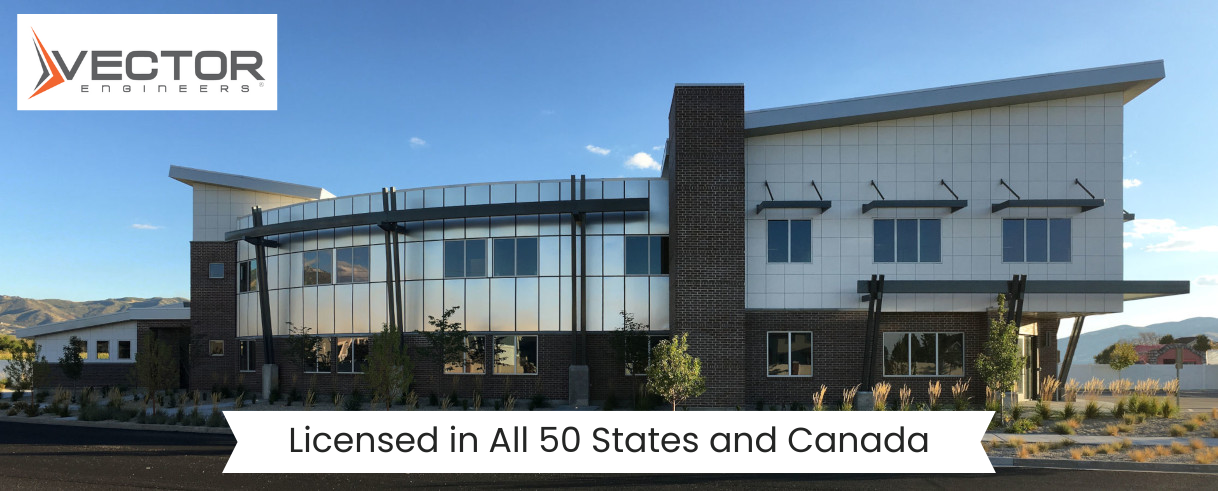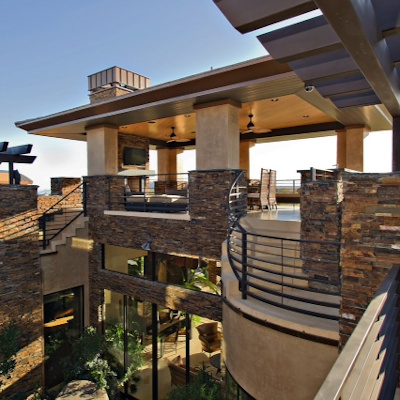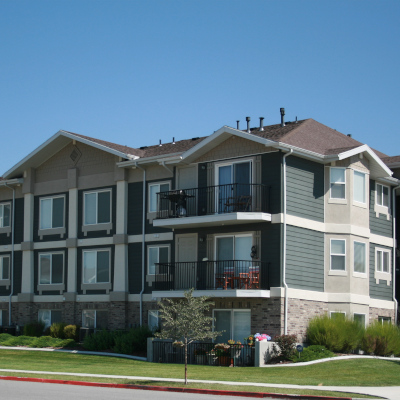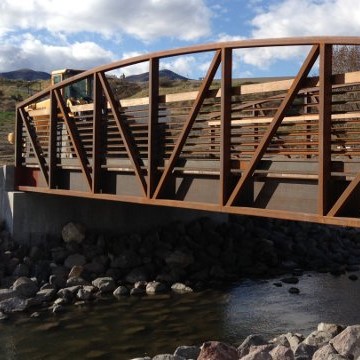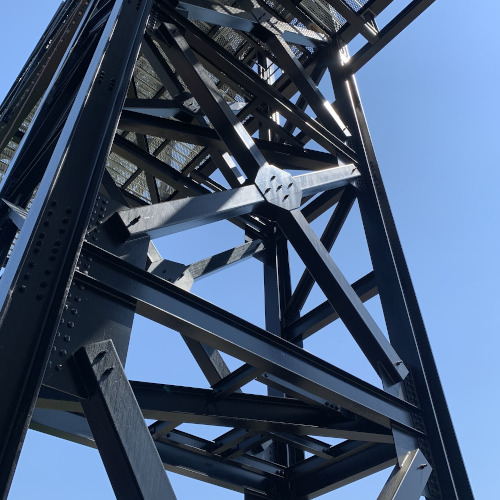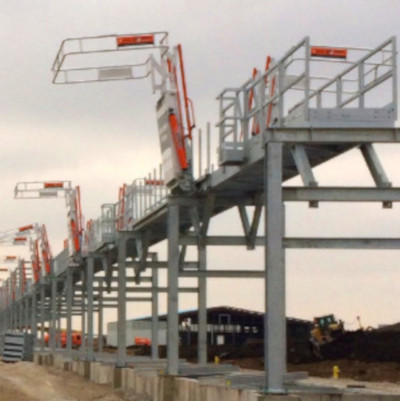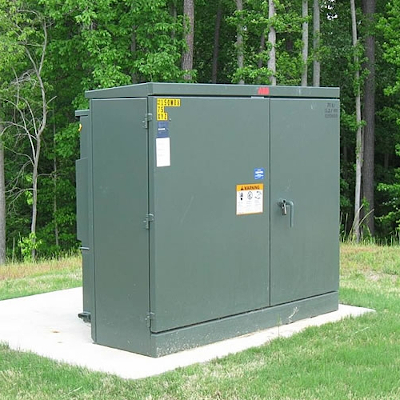Gilbert Residential Structural Engineer
A residential structural engineer plays a crucial role in ensuring the safety and stability of residential structures. They are responsible for designing, analyzing, and overseeing the construction of various building components. From designing the foundation to evaluating the structural integrity of walls and roofs, their expertise is essential in the construction process. In this article, we will explore the role of a residential structural engineer in detail, discuss the importance of structural engineering in residential construction, explain the process of residential structural engineering, provide tips for hiring a Gilbert residential structural engineer, and shed light on the impact of local building codes and regulations.
Understanding the Role of a Residential Structural Engineer
A residential structural engineer is primarily responsible for designing and ensuring the safety of residential structures. Their role involves analyzing the structural components of buildings, identifying potential weaknesses, and proposing appropriate solutions. To accomplish their tasks effectively, they must possess a combination of technical knowledge, practical skills, and experience in structural engineering. Let’s take a closer look at the key responsibilities of a residential structural engineer.
Key Responsibilities of a Residential Structural Engineer
One of the primary responsibilities of a residential structural engineer is to design the structural components of a building. This includes determining the size and location of beams, columns, and load-bearing walls. They also calculate the loads imposed on the structure, such as weight, wind, and seismic forces, to ensure the building can withstand them.
In addition to designing new structures, residential structural engineers also play a crucial role in assessing the integrity of existing structures. They conduct inspections, structural assessments, and feasibility studies to evaluate the condition of buildings. This involves examining the foundation, walls, roof, and other structural elements to identify any signs of deterioration, damage, or potential hazards.
Based on their findings, residential structural engineers recommend appropriate repairs or modifications to ensure the safety and longevity of the structure. They may suggest reinforcing weak areas, replacing damaged materials, or implementing additional support systems to enhance the structural stability.
Furthermore, residential structural engineers are often involved in the construction process. They collaborate with architects, contractors, and other professionals to ensure that the structural design is implemented correctly. They provide guidance and supervision to ensure that the construction meets the required standards and regulations.
Required Skills and Qualifications
To excel in the field of residential structural engineering, professionals must possess a combination of technical skills and qualifications. They should have a strong background in mathematics, physics, and mechanics, as these subjects form the foundation of structural engineering principles.
Proficiency in computer-aided design (CAD) software is also essential for residential structural engineers. This software allows them to create accurate and detailed structural models, which are crucial for visualizing and analyzing the behavior of the building under various conditions.
Excellent communication skills are vital for residential structural engineers as they often need to explain complex technical concepts to clients, architects, and contractors. They must be able to effectively convey their ideas, recommendations, and concerns to ensure a clear understanding among all parties involved.
Problem-solving skills are also crucial for residential structural engineers. They must be able to analyze complex structural problems, identify potential solutions, and evaluate their feasibility. This requires a combination of analytical thinking, creativity, and practical knowledge.
In conclusion, residential structural engineers play a critical role in designing, assessing, and ensuring the safety of residential structures. Their responsibilities encompass various tasks, including structural design, inspections, assessments, and collaboration with other professionals. To excel in this field, they must possess a strong technical background, proficiency in CAD software, excellent communication skills, and problem-solving abilities.
The Importance of Structural Engineering in Residential Construction
Structural engineering plays a vital role in residential construction. It not only ensures the safety and stability of buildings but also contributes to their aesthetic appeal and functionality. Let’s explore these aspects in more detail.
Ensuring Safety and Stability
One of the primary objectives of a residential structural engineer is to ensure the safety and stability of the structure. By accounting for the loads, forces, and potential hazards that a building may face, they can design a structure that can withstand these factors. From the foundation to the roof, every component of a residential building must be designed to resist the forces and stresses imposed on it.
Enhancing Aesthetic Appeal and Functionality
While safety is paramount, residential structural engineers also strive to enhance the aesthetic appeal and functionality of the building. They work closely with architects to create innovative designs that incorporate both structural integrity and visual appeal. By optimizing the use of space and materials, they can create living spaces that are not only safe but also aesthetically pleasing and functional.
The Process of Residential Structural Engineering
The process of residential structural engineering involves several stages that ensure the successful completion of a project. Let’s examine each stage in detail.
Initial Consultation and Site Analysis
During the initial consultation, the residential structural engineer meets with the client to discuss their requirements, budget, and timeline. They also conduct a thorough site analysis to evaluate the existing conditions and constraints that might impact the project. This includes assessing soil conditions, topography, and nearby structures that could potentially affect the design choices.
Design and Planning
Once the initial analysis is complete, the residential structural engineer begins the design and planning phase. They create detailed structural drawings using CAD software, taking into account the architectural plans and specifications provided by the client. The design must meet all safety codes and regulations while accommodating the desired aesthetic and functional requirements.
Construction Supervision and Project Completion
After the design is finalized, the residential structural engineer oversees the construction phase. They collaborate with contractors, ensuring that the structural elements are implemented correctly. They conduct regular inspections to verify compliance with the design, monitor construction progress, and address any unforeseen issues that may arise. Upon completion of the project, the engineer conducts a final inspection to ensure that the structure meets all safety and quality standards.
Hiring a Gilbert Residential Structural Engineer
When hiring a residential structural engineer in Gilbert, there are several factors to consider to ensure you choose the right professional for your project. Let’s explore what to look for in a structural engineer and the essential questions to ask before making a hiring decision.
What to Look for in a Structural Engineer
When selecting a residential structural engineer, it’s crucial to consider their qualifications, experience, and track record. Look for engineers who are licensed and have extensive experience in residential structural engineering. Additionally, consider their previous projects and references to verify their expertise and ability to deliver high-quality work.
Questions to Ask Before Hiring
Before making a hiring decision, it’s essential to ask potential candidates a few key questions. Inquire about their approach to design, their experience working with similar projects, and their familiarity with Gilbert’s specific building codes and regulations. Additionally, discuss the estimated timeline and budget for your project to ensure that they can meet your requirements.
The Impact of Local Building Codes and Regulations
In the field of residential structural engineering, local building codes and regulations significantly influence the design and construction process. Understanding Gilbert’s building codes is essential for a residential structural engineer to ensure compliance and safety. Let’s delve into this topic further.
Understanding Gilbert’s Building Codes
Gilbert has specific building codes that dictate the minimum requirements for residential structures. These codes cover various aspects, including structural design, fire safety, electrical systems, plumbing, and more. Compliance with these codes ensures that residential buildings are safe, energy-efficient, and accessible.
How Local Regulations Influence Design and Construction
Local regulations impact the design and construction processes by setting specific requirements and standards. Residential structural engineers must consider these regulations when designing a structure to ensure compliance. By familiarizing themselves with the local codes and regulations, engineers can create designs that meet all the necessary criteria, ensuring the safety and legality of the residential structures they work on.
Residential structural engineers are essential professionals in the construction industry. Their expertise ensures the safety, stability, and functionality of residential structures. By understanding their role, the importance of structural engineering, and the impact of local building codes and regulations, you can make informed decisions when hiring a Gilbert residential structural engineer for your project.
What our customers have to say
“We have had a very smooth transition from our previous engineering firm to your company. Since we made the move, the turnaround times have been very quick and consistent, and we haven’t had to stress over our structural stamps — which has been a great relief. Many thanks to you and the rest of your team.“
“Over the course of my ten years in the industry, I’ve used probably 30 different PE firms, and Vector has just out-performed them in every way. Speed. Quality. Price. We operate in 900 cities and towns in seven states, and all the jurisdictions appreciate their verbiage, layout and calculations. We never have issues with anybody questioning their work.”
“DBM Solar Design & Consulting has been working with Vector now for 5 years. We have not worked with any other engineering firm outside of Vector and there is a reason for that. All the engineers that I have worked with have all been most accommodating in every aspect of our solar engineering projects.”
“I have had the pleasure of working with the Engineers at Vector for over 10 years. Over that time they have continually proven themselves in their quality of work, dedication to their craft, and in meeting tight deadlines. They have gone out of their way to learn and understand our designs to ensure their results are as accurate and reasonable as possible. I would highly recommend them to anyone.”
“We have had a very smooth transition from our previous engineering firm to your company. Since we made the move, the turnaround times have been very quick and consistent, and we haven’t had to stress over our structural stamps — which has been a great relief. Many thanks to you and the rest of your team.“
“I have had the pleasure of working with the Engineers at Vector for over 10 years. Over that time they have continually proven themselves in their quality of work, dedication to their craft, and in meeting tight deadlines. They have gone out of their way to learn and understand our designs to ensure their results are as accurate and reasonable as possible. I would highly recommend them to anyone.”
“Over the course of my ten years in the industry, I’ve used probably 30 different PE firms, and Vector has just out-performed them in every way. Speed. Quality. Price. We operate in 900 cities and towns in seven states, and all the jurisdictions appreciate their verbiage, layout and calculations. We never have issues with anybody questioning their work.”
“DBM Solar Design & Consulting has been working with Vector now for 5 years. We have not worked with any other engineering firm outside of Vector and there is a reason for that. All the engineers that I have worked with have all been most accommodating in every aspect of our solar engineering projects.”

Providing Structural & Electrical Engineering services in all 50 states plus Washington D.C., Puerto Rico and Canada.


